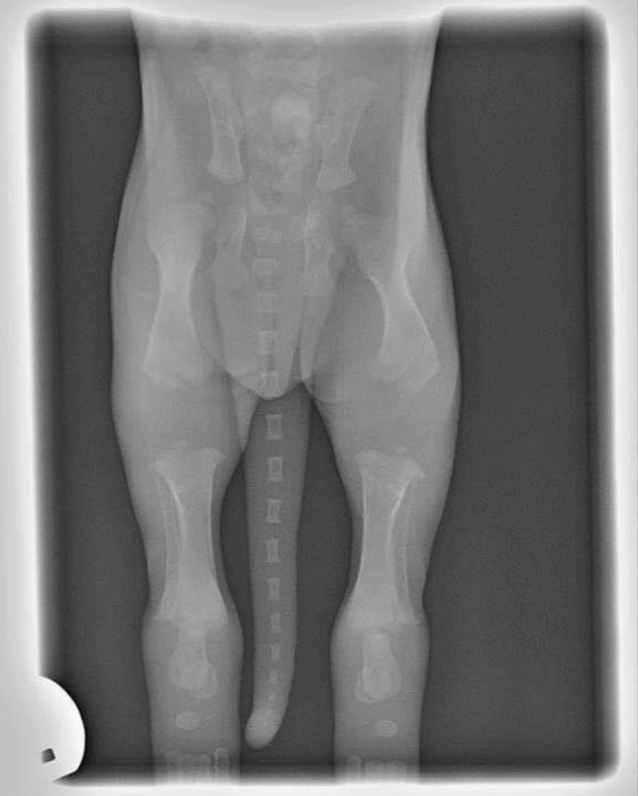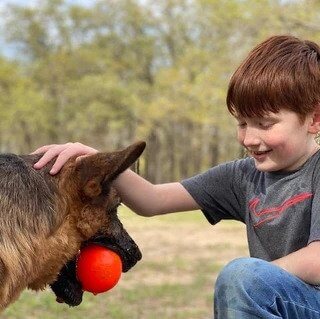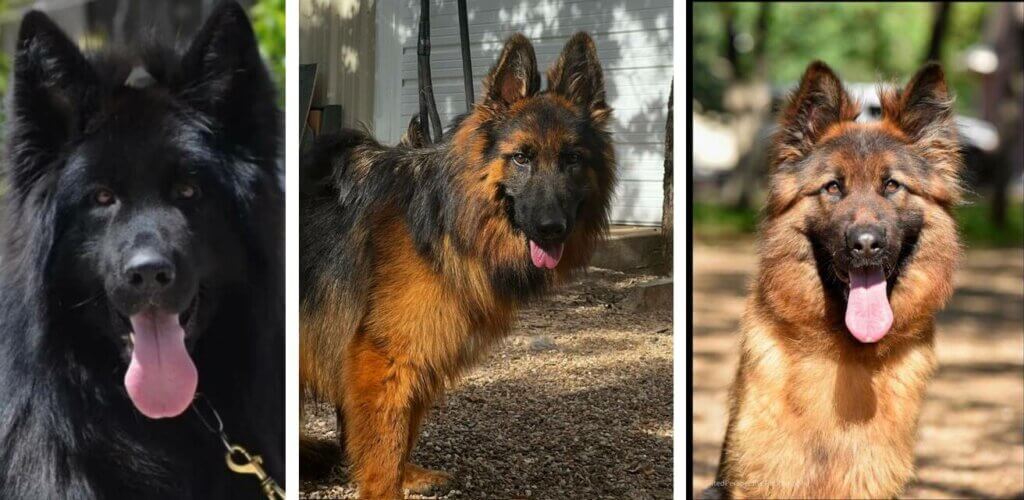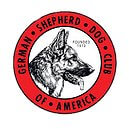Every German Shepherd dog owner is responsible for taking preventative action to ensure their dog receives the highest quality of life possible. Not only is it essential to seek out a reputable breeder, but a dog owner must also ensure that their puppy can safely grow and develop in their new environment.
Before breeding occurs, a responsible German Shepherd breeder researches the bloodlines of both parents to assure there are no avoidable genetic problems.
While responsible breeding is the first step to avoid producing German Shepherd puppies with lifelong health issues, it is crucial to note that the environment in which a puppy grows up plays a vital role in their long-term health.
Hip Dysplasia in German Shepherd Dogs
As with most dog breeds, German Shepherd dogs are known to have specific and potential health concerns that both breeders and owners should be aware of and proactively try to avoid. One possible and well-documented health concern includes the incidence of hip dysplasia in dogs.
Hip dysplasia, a common generative joint disease caused by an abnormal formation of the hip joint, is hereditary and is especially common in large and giant breed dogs. The hip consists of a ball and socket joint. The femur head is the ball and should fit nicely into the socket, also called the acetabulum. If there is not a snug fit between the femur head and acetabulum, the joint is abnormal.
German Shepherd dogs are no exception to the development of hip dysplasia. Several factors lead to the incidence of hip dysplasia in dogs, beginning with genetics and carrying through upbringing. While genetics are a factor, a new puppy owner can prevent hip dysplasia by not over-exercising their growing puppy.
Every new puppy owner should understand the importance of preventing joint injury. A critical factor in preventing hip dysplasia in German Shepherd puppies is careful and controlled exercise. A well-built body is a reflection of both excellent breeding and a great upbringing.

Preventing Hip Dysplasia in German Shepherds While They Are Puppies
You may feel tempted to tire out your new 8-week-old German Shepherd puppy through vigorous exercise, but it is important to note that excessive physical activity will cause more harm than good.
Eight-to-ten-week-old puppies’ bones and joints are still developing and forming. As breeders and new puppy owners, we observe this while our puppies plod around wobbly and adorable. Their bones have not yet fused. Notice the x-ray of a two-week-old puppy shown below.
Encouraging your puppy to participate in a lengthy or high-impact activity at a young age can cause serious issues later on in life. To prevent damaging their developing joints, avoid taking your new puppy out on extended walks and hikes or allowing them to jump off couches and beds.
Over-exercising your puppy will not allow them the opportunity to grow properly. For every month of age, a puppy’s physical activity should increase by only five minutes. For example, your new eight-week-old puppy only requires 10 minutes of physical activity each day, while your six-month-old puppy requires 30 minutes of physical activity each day.
Reasonable amounts of exercise and leaping are normal and beneficial, but it is essential to keep in mind that each grand leap and each lively, bouncing run causes wear and impacts space between your puppy’s bones.
Examples of acceptable physical activity include walking, training, fetch, and playing with other dogs. Once your German Shepherd dog has had the chance to become fully grown, you will have plenty of time for vigorous play and higher impact exercise together.
The Kaiser German Shepherd Guarantee
Before breeding occurs, a responsible German Shepherd breeder researches the bloodlines of both parents to assure there are no avoidable genetic problems.
Before breeding our females, we thoroughly research the pedigree of a potential Sire to assure there are healthy hips and elbows in his bloodline several generations back.
All of our adult dogs at Kaiser German Shepherds have had their hips and elbows x-rayed and certified as Normal through German SV.
Thank you for your interest in Kaiser German Shepherds. You can reach us via the contact form below and we will get back with you as soon as possible. If you do not hear from us within a few business days please email us directly at kaisergsdtx@gmail.com. On some occasions we travel for extended weekends to show and title our dogs around the United States.
We look forward to talking with you!










